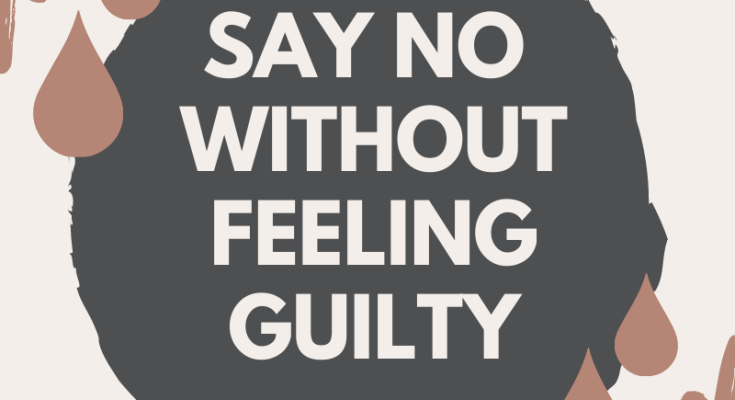
Learning to say “no” is a crucial skill for maintaining boundaries and preserving your well-being. However, many individuals struggle with feelings of guilt when uttering that two-letter word.
These are some ways to say “no” without succumbing to guilt.
- Saying no is not a sign of weakness

Everyone has limits, and it’s okay to set boundaries. Understand that saying “no” is not a sign of weakness but a demonstration of self-awareness and respect for your own capabilities and priorities.
- Practice Empathetic Honesty
When delivering a “no,” frame your response with empathy and honesty. Communicate your limitations or reasons for declining in a straightforward yet compassionate manner.
People appreciate honesty, and by providing a clear explanation, you reduce the likelihood of misunderstandings.
- Express Gratitude
When declining a request, express gratitude for being considered or invited. Gratitude adds a positive touch to your response.
Let the person know that you appreciate the opportunity but unfortunately cannot commit at this time.
- Use “I” Statements
Use “I” statements to take ownership of your decision. For example, say, “I am unable to commit to this right now” instead of placing blame or making excuses.
This approach asserts your autonomy while maintaining respect for others.
- Set Clear Priorities
Establish clear priorities in your life. Knowing what matters most to you enables you to make decisions aligned with your values.
When you say “no,” you are safeguarding your time and energy for the things that truly matter.
- Learn to Embrace Discomfort
Recognize that initial discomfort when saying “no” is normal. Embrace it as part of the process of setting boundaries.
Over time, the discomfort lessens, and your ability to assertively say “no” strengthens.
Saying “no” without feeling guilty is a skill that can be developed and refined over time. By implementing these ways, you set boundaries, and prioritize your well-being.
Remember, saying “no” is not a rejection. It’s an affirmation of your autonomy and self-respect.







